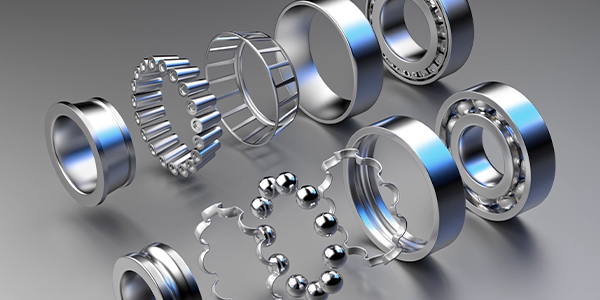What is a Wheel Bearing?

A wheel bearing is a set of steel balls or rollers that are held in a circular metal ring (called the race). They are designed to allow the wheel hub to spin freely around the axle with minimum friction. Wheel bearings also transfer the weight of the vehicle from the axle to the wheel hub and help maintain the alignment of the wheels.
Types of Wheel Bearings
There are two main types of wheel bearings - taper roller bearings and ball bearings.
Taper Roller Bearings: These bearings are commonly used in heavy-duty vehicles and have a long lifespan. They can handle large vertical and horizontal loads and are less prone to wear and tear.
Ball Bearings: These bearings are smaller and lighter than taper roller bearings and are used in most passenger cars. They have a higher level of precision and provide better fuel efficiency.
Signs of a Faulty Wheel Bearing
The following are common signs of a faulty wheel bearing:
- Excessive noise from the wheel hub: A grinding or growling noise while driving is a sign that the wheel bearing needs to be checked.
- Vibration in the steering wheel: A vibration in the steering wheel can indicate that the wheel bearing is damaged or worn.
- Uneven tire wear: A wheel bearing failure can cause uneven tire wear, which is usually noticed when the tires are rotated or changed.
- Steering wheel wobbling: An unbalanced or loose wheel bearing can cause the steering wheel to wobble or shake.
Wheel Bearing Maintenance
Proper wheel bearing maintenance can extend the lifespan of your vehicle's suspension system. Here are some tips on maintaining your wheel bearings:
1. Keep your wheels aligned: Proper wheel alignment can reduce the amount of stress placed on your wheel bearings, which can help extend their lifespan.
2. Inspect wheel bearings regularly: It's important to visually inspect your wheel bearings regularly for signs of wear and tear.
3. Keep your wheels clean: The accumulation of dirt, dust, and debris around the wheel hub can cause damage to the wheel bearings. Keep your wheels clean by washing them regularly.
4. Use quality products: When replacing your wheel bearings, be sure to use quality products that are designed for your vehicle's make and model.
Conclusion
Overall, wheel bearings are an essential part of any vehicle's suspension system. They provide a smooth and frictionless rotation of the wheel hub around the axle, transfer the weight of the vehicle from the axle to the wheel hub, and help maintain the alignment of the wheels. It's important to understand the signs of a faulty wheel bearing and to maintain them regularly to ensure the safety and longevity of your vehicle.